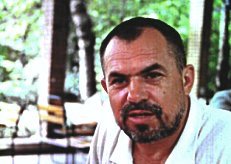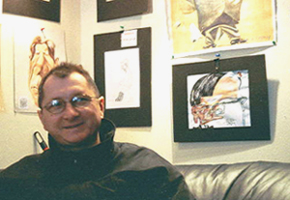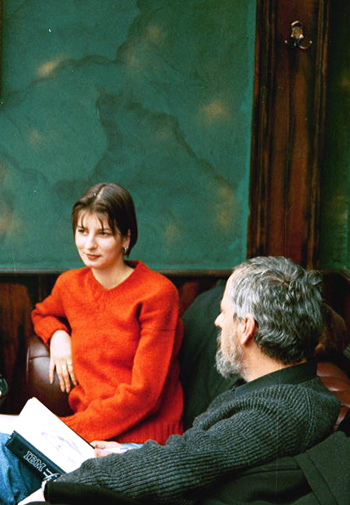|
|
|
 Since the Romanian revolution in 1989, Romania has had a "free" and "democratic" press.
Since the Romanian revolution in 1989, Romania has had a "free" and "democratic" press.Before 1989, there were only 2 public television channels TVR1 and TVR2, 2 public radio stations 1 and 2, and a few newspapers, all under the thumb of the communist party. We currently have over 15 radio stations and 7 tv stations operating in Bucharest and at national level, whereas the offer of printed press has increased to over 10 newspapers only in Bucharest. You can find most of the top radio and tv stations in our Media Resources Section . We consider that the best way to make a presentation of Romanian media companies is to let people who do the job speak. |
 "Talking about an independent Romanian media is like selling bushes" Read the interview with Cornel Ciomazga, President of the Association of European Journalists, Romanian Branch. |
| Media Resources- Comprises a description of the most important media companies, as well as a complete list of media organizations in Romania. |
|
Cartoonists Horatiu Malaiele |
|
|
Chief Editors |
|
|
Publishers, Presidents, Managers Cornel Ciomazga |
|
Horatiu Malaiele 
Horatiu Malaiele.
Motto: |
Ho si Mi Gallery is actually a 9 feet wide on 15 feet long room or 9 feet long on 15 feet wide showroom, as you wish. After you have entered, you fall to believe that even your kitchenette can llok like that. The stacks of caricature give new light and color to the walls. Lots and lots of drawings suddenly make the place big enough for a conference or meetings hall. The drawings sketch politicians, sportspeople, VIPs.
The sharp profile and big nose is characteristic to Bogdan Petri. The long shapes come into view in Octav Mardale's cartoons. Silviu Turculet is much more closer to Malaiele, both of them giving an ironical representation. |
|
Ion Barbu
Once you look at Ion Barbu, you have the impression that you know him from somewhere. His gray hair and thick beard remind of history classes, when Dacians- the ancestors of Romanian people today- were often portrayed as bold and thick bearded. Mr. Barbu is one of our typical ancestors, but instead of a sword he handles the pen- an efficient weapon to win contemporary battles. |
' However, not all the people have common reactions', says Barbu.' For instance, I have been drawing over 2000 cartoons representing Ion Iliescu and I still haven't got any feedback from him. When drawing, |
The girl's portrait is now ready. This time, there are no huge ears or goggled eyes. But the funny resemblance accounts for the luring effect cartoons have in newspapers: showing in drawings what others put in words.  A back view of Ion Barbu - drawing the portrait of a student.
|
|
Cornel Ciomazga
The first talk-show man in Romania after 1990, the first director of a private radio station, the president of the Association of European Journalists, Romanian branch- this is in short the business card of Cornel Ciomazga. |
The story of the last ten years in Cornel Ciomazga's life probably comprises more resignations and dismissals than any other Romanian journalist's life. After the collective resignations from Zig-Zag Magazine, Mr. Ciomazga was appointed director of the first private radio station- Fun Radio- an expansion of Fun Radio network in France.
|
"The stars that everyone see on their tv screens will soon disappear and their place will be taken by genuine young professionals", concludes Mr. Ciomazga, while he finishes his last glass of lemon and mineral water. |